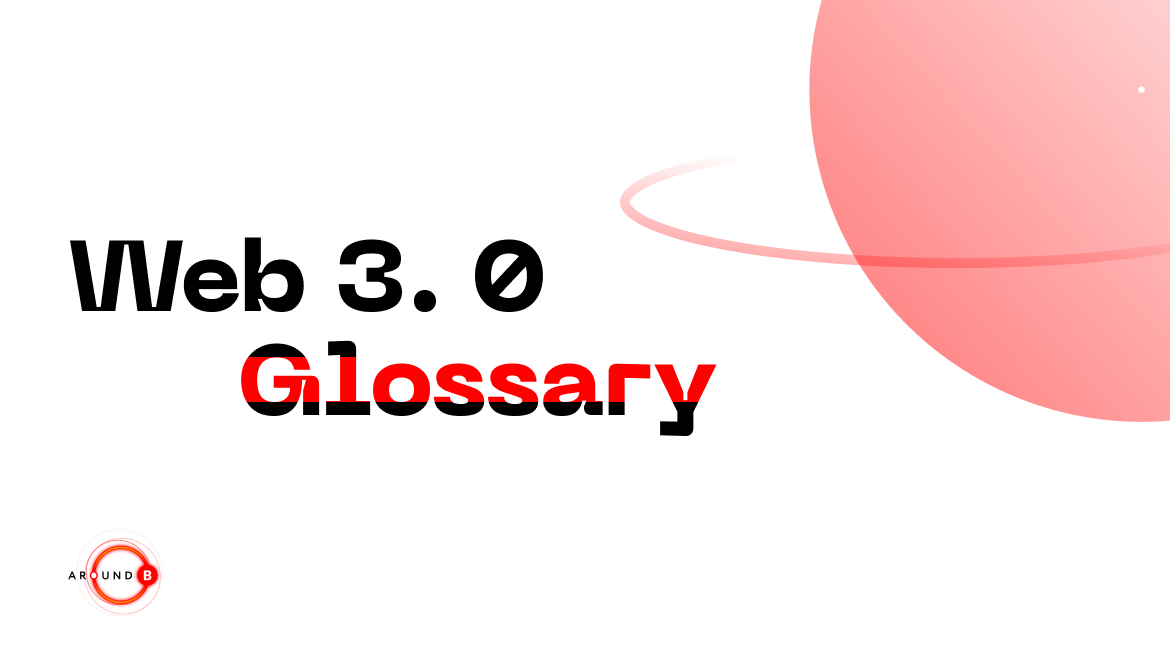
Welcome to the weird and wonderful world of web3, a new “reality” for the Internet 💥.
We’ve curated a list of some of the most common terms you’ll hear while navigating the space. Commit these to memory and you’ll be well-equipped for anything web3 may throw your way!
Airdrop — a marketing technique in which crypto projects send their native tokens directly to users’ digital wallets in an effort to increase awareness and adoption.
Bear Market — a prolonged term of asset decline in a financial market.
Consensus — a system of rules in a blockchain that must be verified in order to reach an agreement on a single data value or a single state of the network.
Cryptocurrency — a decentralized digital currency, created using cryptographic techniques.
DeFi (Decentralized Finance) — an ecosystem of borderless, trustless, peer-to-peer financial tools being built on public blockchains without the use of traditional banks.
DApp — decentralized application — a software application that runs on a blockchain or peer-to-peer network of computers instead of a single computer.
DAO — Decentralized Autonomous Organization — an open-source platform running on a blockchain that allows users to collectively manage the code.
Ethereum — a decentralized global software platform powered by blockchain technology that was launched in 2015 by Vitalik Buterin. Ethereum is the leading smart contract-enabled blockchain in the world, and its native token, ETH, is the second-largest digital asset by market cap.
EVM — Ethereum Virtual Machine — software framework that allows developers to construct Ethereum-based decentralized applications.
Fiat — government-issued currency such as the US Dollar established as legal tender and usually backed and regulated by a government.
Metaverse — a shared virtual environment where people’s avatars can interact with digital objects and with other people.
MetaMask — a popular cryptocurrency wallet used to interact with the Ethereum blockchain.
Gas Fee — the compensation that users pay blockchain validators in order to include their transactions into the blockchain.
Minting — the process of turning a digital file into a crypto collectible or digital asset on a blockchain. The digital item or file is stored forever in a decentralized database or distributed ledger, preventing it from being edited, changed, or deleted. After the minting process, the creator of the NFT can collect royalties from every subsequent sale.
NFT — a unique token stored on a blockchain that represents digital assets such as images, music, 3D models, or art.
Proof of Work — consensus algorithm that involves solving a computationally challenging puzzle whose proof is added to a blockchain.
Smart contract — a decentralized program that is stored on the blockchain, and triggered when users satisfy coded prerequisites. A computer algorithm designed to generate, provide and manage information about the ownership of something.
Solana — a blockchain that deals with the key problems of transaction speed, scalability, gas price, and energy efficiency. It is open-source and supports the creation of DApps by third-party developers.
Web3 — a concept for a new iteration of the World Wide Web that incorporates concepts such as decentralization. Also referred to as the “read-write-trust web.”
Planning to launch your web3 startup?
✍️ Contact us to learn more about how to master your crypto marketing
Related Web 3.0 articles:
➡️ Advantages of crypto winter and bear market for crypto marketing

